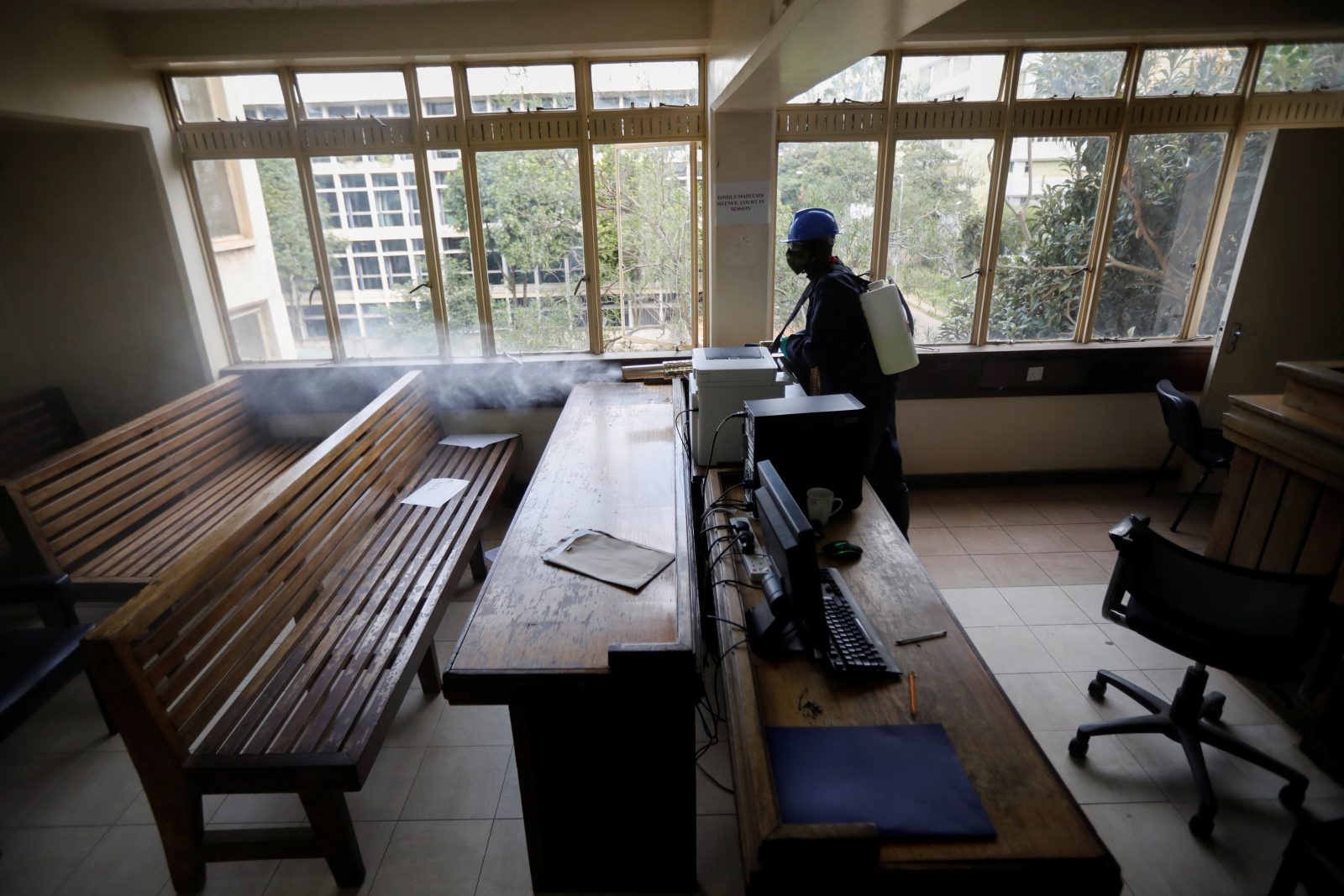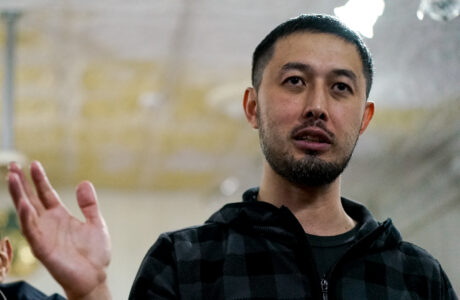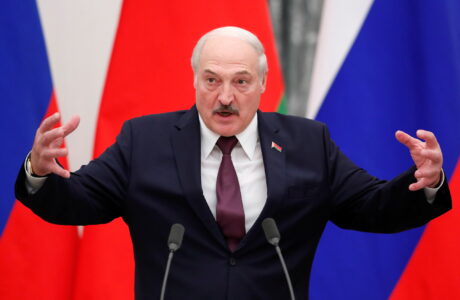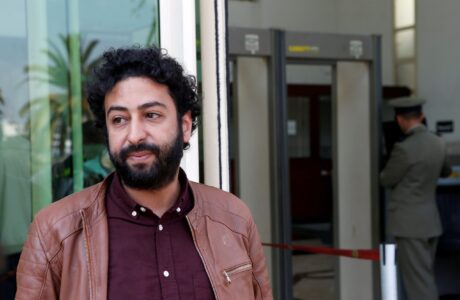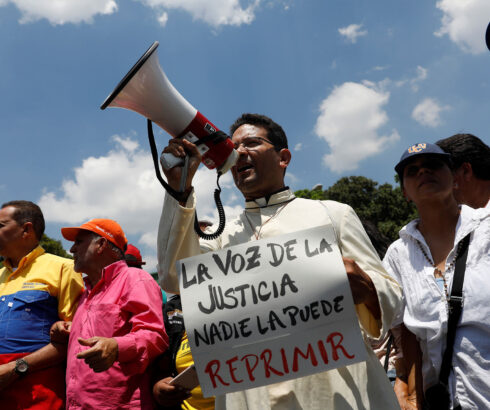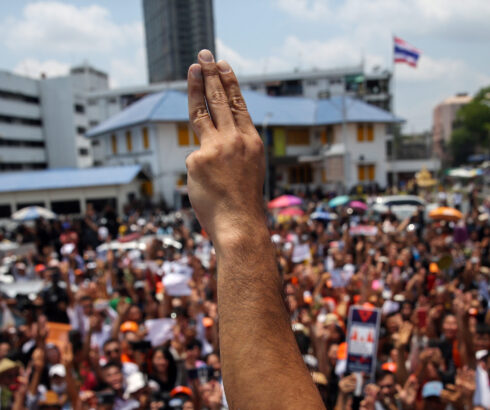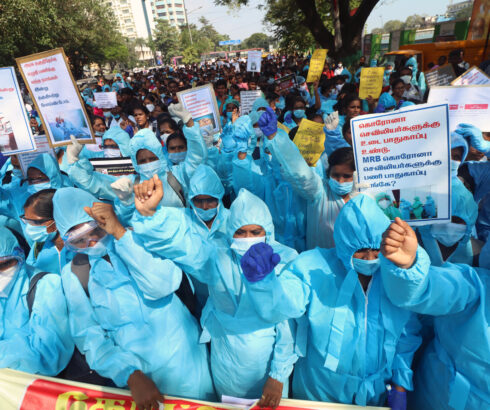During the global lockdowns, TrialWatch saw several examples of how COVID-19 restrictions were used as a way of limiting access to courtrooms. We also saw how people criticizing the government’s response to the pandemic were targeted under the guise of fighting ‘disinformation’; others under cover of emergency laws.
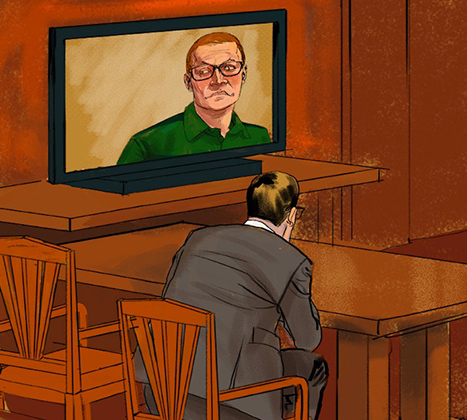
Journalists, bloggers, artists, doctors, and other citizens have been arrested for criticizing their government’s policies – or even for just telling the world about the virus.
TrialWatch monitored and exposed injustice in their trials, including a journalist convicted of ‘fake news’ in Russia, a journalist dealing with what seem to be politically motivated charges in India after she criticized the government’s handling of the pandemic, and trials of people who posted criticisms of their government’s COVID response on social media.
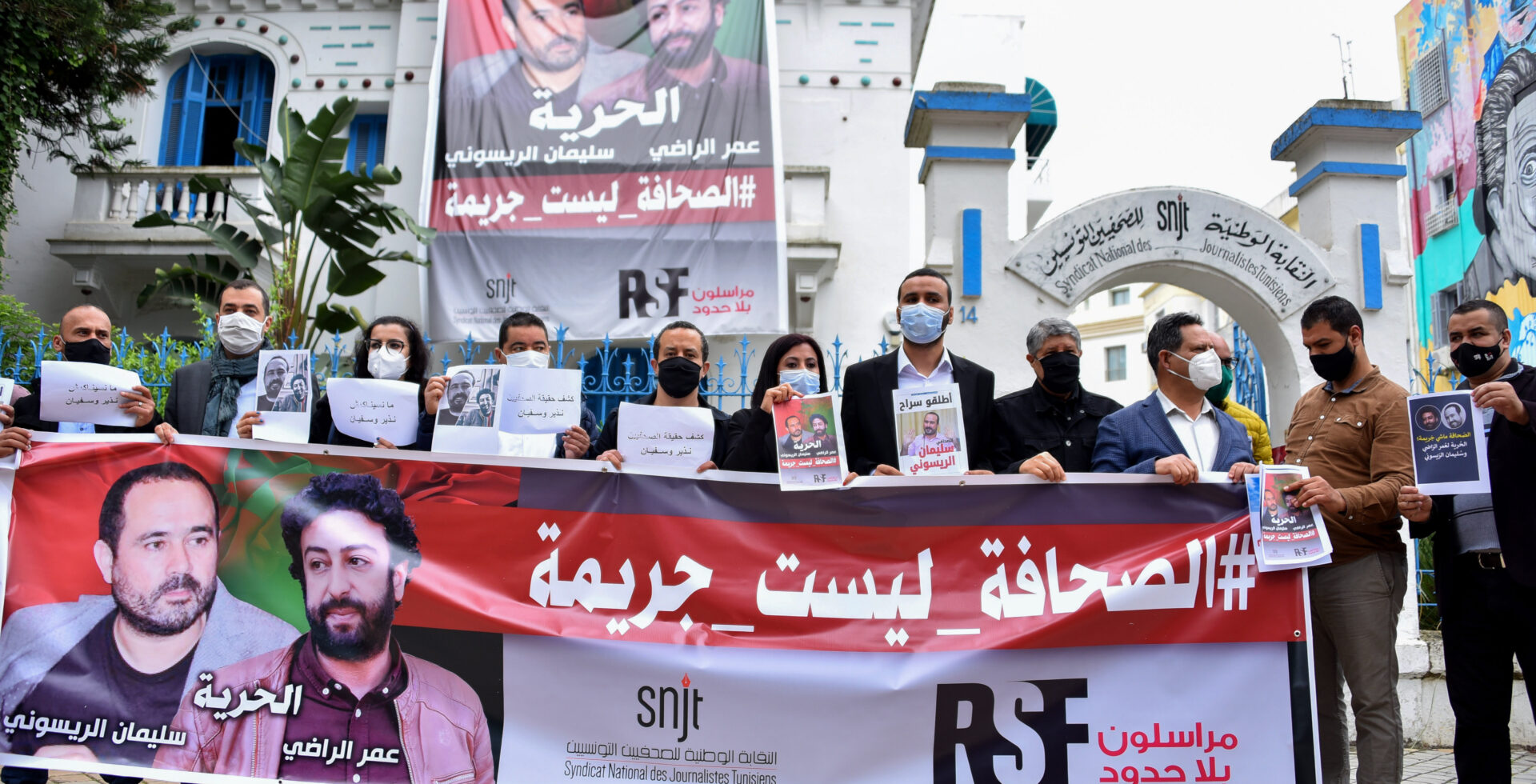
Access to Justice
Once arrested, COVID was also used as a pretext for holding closed court sessions, with little or no public access — or even denying the defendant the right to appear in person. In Morocco, the authorities sought to hold the first hearing in Omar Radi’s case virtually based on the prevalence of COVID-19. This makes it much harder to make sure people’s fair trial rights are being respected, and to hold justice systems accountable for unfair sentencing and convictions.
The authorities also invoked the pandemic to limit defendants’ access to their lawyers.
In the case of a Crimean Tatar human rights defender tried in Russia on terrorism charges, the Russian authorities justified limitations on lawyer visits by invoking the pandemic, but the UN Working Group on Arbitrary Detention, to which CFJ took his case after his unfair conviction, found that even “[i]f the exigencies of the prevailing public health emergency require restrictions on physical contact, States must ensure the availability of other ways for legal counsel to communicate with their client.”
TrialWatch also monitored the fairness of trials that ultimately took place virtually.
In Kazakhstan, activist Alnur Ilyashev was convicted of “spreading false information during an emergency” for social media posts critical of the authorities, including their response to COVID-19. His trial was conducted by video conference due to the pandemic but the manner in which these remote proceedings were organized violated his rights — including because participants were barely audible on numerous occasions and defense counsel was unable to consult their client.
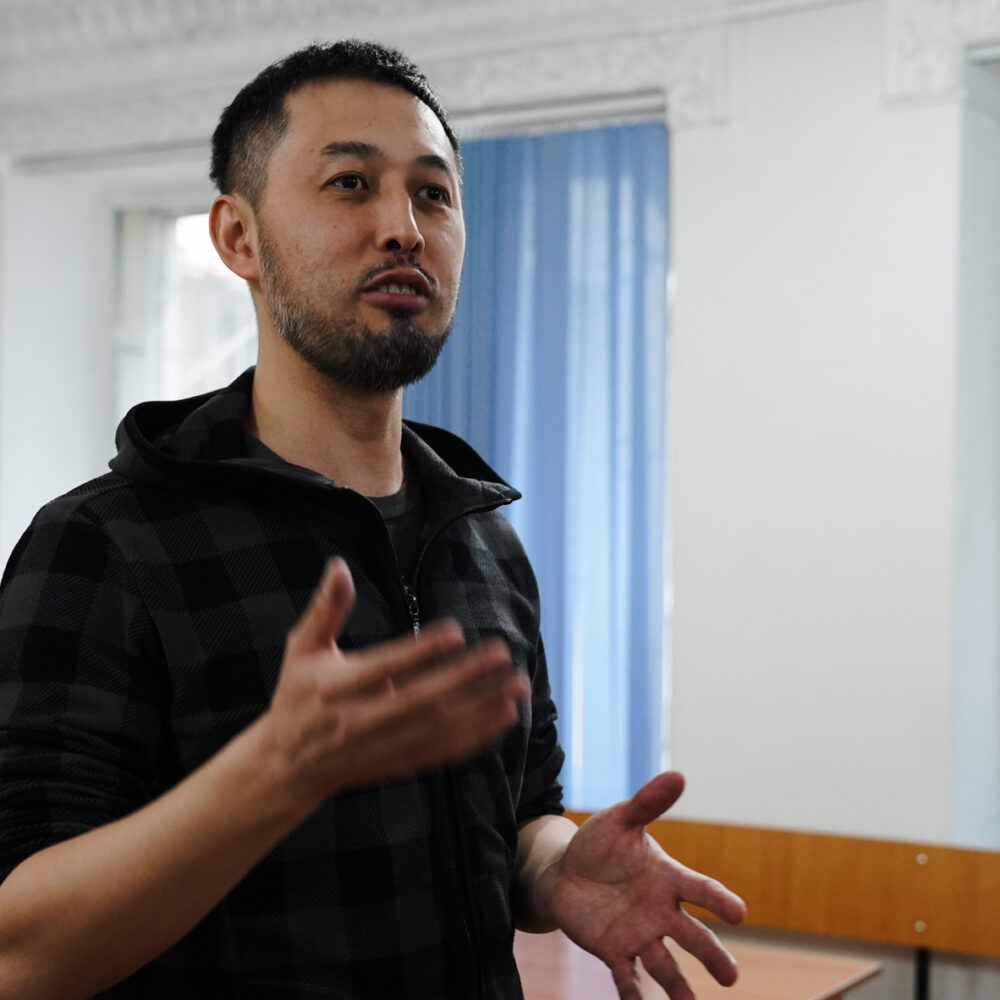
This case shows the pitfalls of virtual trials. The defendant’s rights were repeatedly violated as a result of poor connectivity and the authorities’ failure to provide a way for him to consult with his lawyers.
Legal Expert in the case of Alnur Ilyashev
Unsafe Detention
Despite closing courtrooms and restricting access to trials, countries didn’t always do basic things to protect defendants’ health – such as releasing people on bail instead of holding them in detention.
TrialWatch exposed violations of defendants’ rights that have implications for their health in multiple countries. In Belarus, TrialWatch reporting on fifteen post-election trials documented how one of the defendants observed two detainees with respiratory symptoms in her cell.
“A doctor was not called for two days, after their symptoms had worsened, and the sick inmates were not isolated. Defendants were not given masks during their pre-trial detention. I am extremely concerned about their conditions, particularly because of the surge in COVID-19 cases in prisons across the country.”
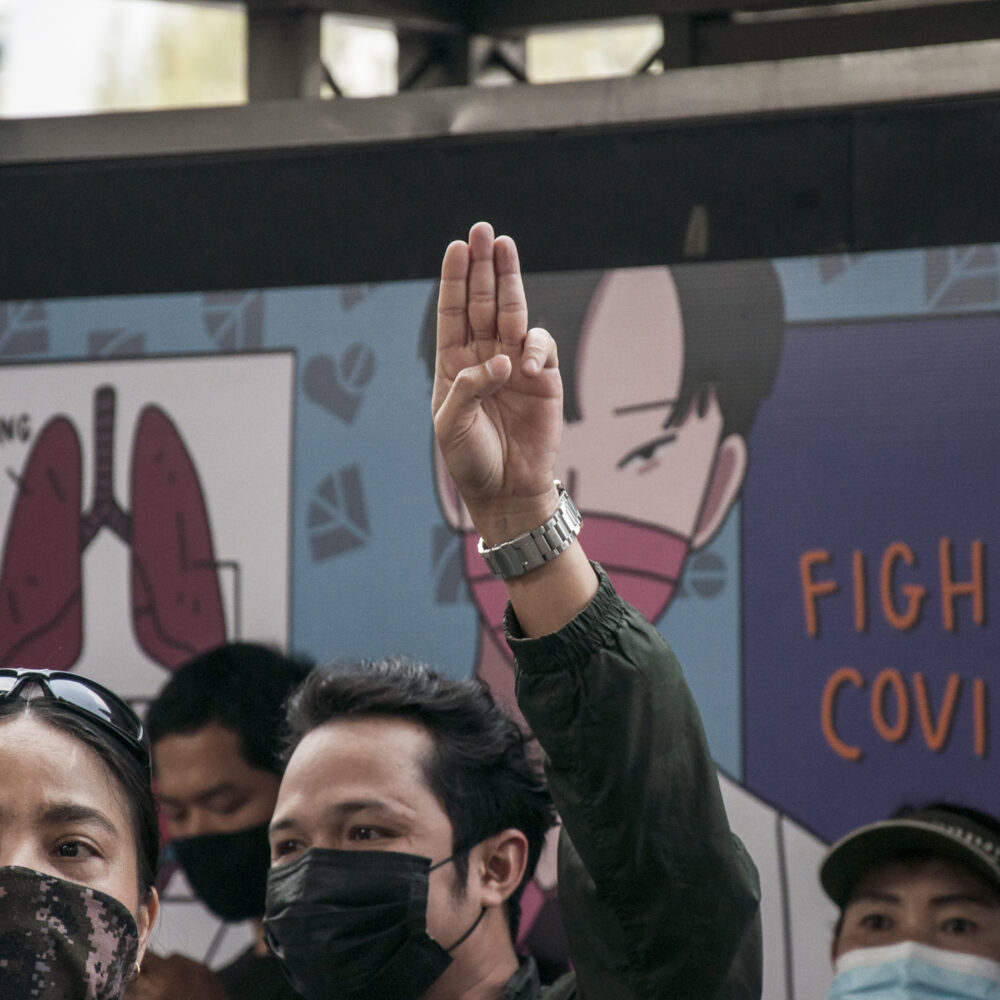
In Thailand, protest leaders who have been in pre-trial detention on charges including ‘insulting royalty’ have contracted COVID.
In Russia, Crimean Tatar human rights defenders were not given appropriate medical treatment despite their concerns — expressed repeatedly in court — that they are sick and have potentially contracted COVID-19.
